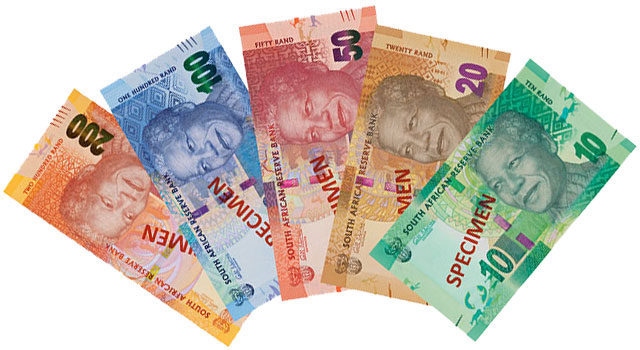
The rand extended gains, strengthening the most among global currencies after the South African government said it would delay a plan to build new nuclear power plants, allaying concern that the cost of the program would strain fiscal targets.
The rand gained as much as 1,3% to R14,05/US$, the strongest in two weeks on a closing basis and the most among 31 major and emerging market currencies tracked by Bloomberg. Yields on 10-year government bonds declined for a sixth day, down five basis points to 8,9%, the lowest on a closing basis since 9 November.
The new timeline, laid out in a report published on Tuesday, sees the first additional nuclear power plant coming on stream in 2037, compared with an earlier proposal of 2023.
While President Jacob Zuma has championed the nuclear build programme, estimated to cost from $37bn to $100bn, finance minister Pravin Gordhan has cautioned that new reactors may be not be affordable at a time when the economy is barely growing. Ratings companies are due to deliver reviews of South Africa’s creditworthiness, starting this week.
“That’s encouraging for the market because the cost is going to be pretty big,” said Nigel Rendell, senior emerging market analyst at Medley Global Advisors in London. “There really is no spare money to go down this route for the time being. There’s been disagreements between Zuma and the finance ministry about this, so it’s positive for the fiscal side and positive for the treasury in general that they’re keeping a lid on spending.”
Moody’s Investors Service, which rates South Africa two level above investment grade, is publishing a review of the rating on 25 November, while S&P Global Ratings and Fitch Ratings, which both asses the country’s debt at the lowest investment level, are scheduled to release their assessments next month.
The cost of insuring South Africa’s debt against non-payment for five years using credit default swap contracts fell to the lowest since 10 November. By 11.39am in Johannesburg, the rand was 1,1% stronger at R14,09. Against the euro, it advanced 0,9% to R14,99, the strongest since 10 November.
“The timing of it comes just before the credit ratings agencies,” Rendell said. “Maybe that will help them, but I’m not sure it’s going to be enough.”
The government’s Integrated Resources Plan still calls for the construction of reactors, with a total 20,4GW of nuclear energy added to the national grid by 2050. The government had previously wanted to generate 9,6GW of energy from as many as eight reactors that would be completed by 2029.
“It’s been postponed so far down the line that by the time we get there nuclear energy might possibly be obsolete and not be a viable option anymore,” said Jana van Deventer, an analyst at ETM Analytics in Johannesburg. “This latest development potentially means that any nuclear power deal is off the table for the time being.” — (c) 2016 Bloomberg LP




